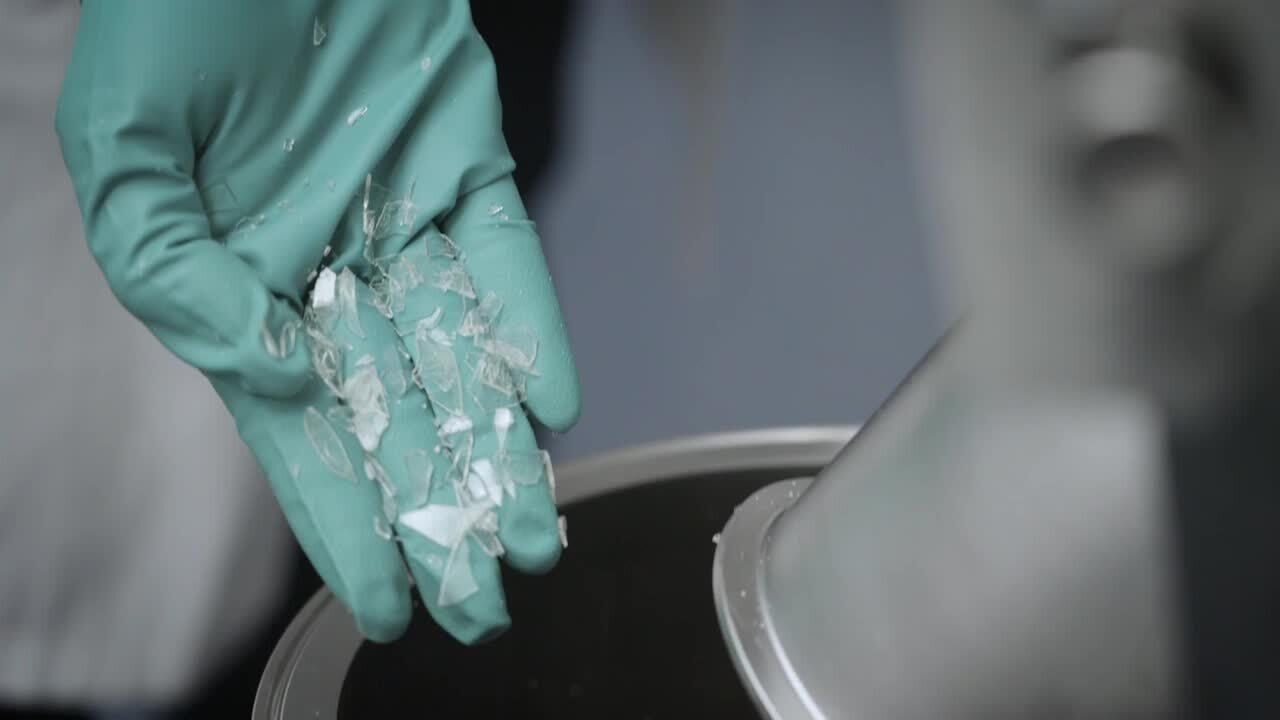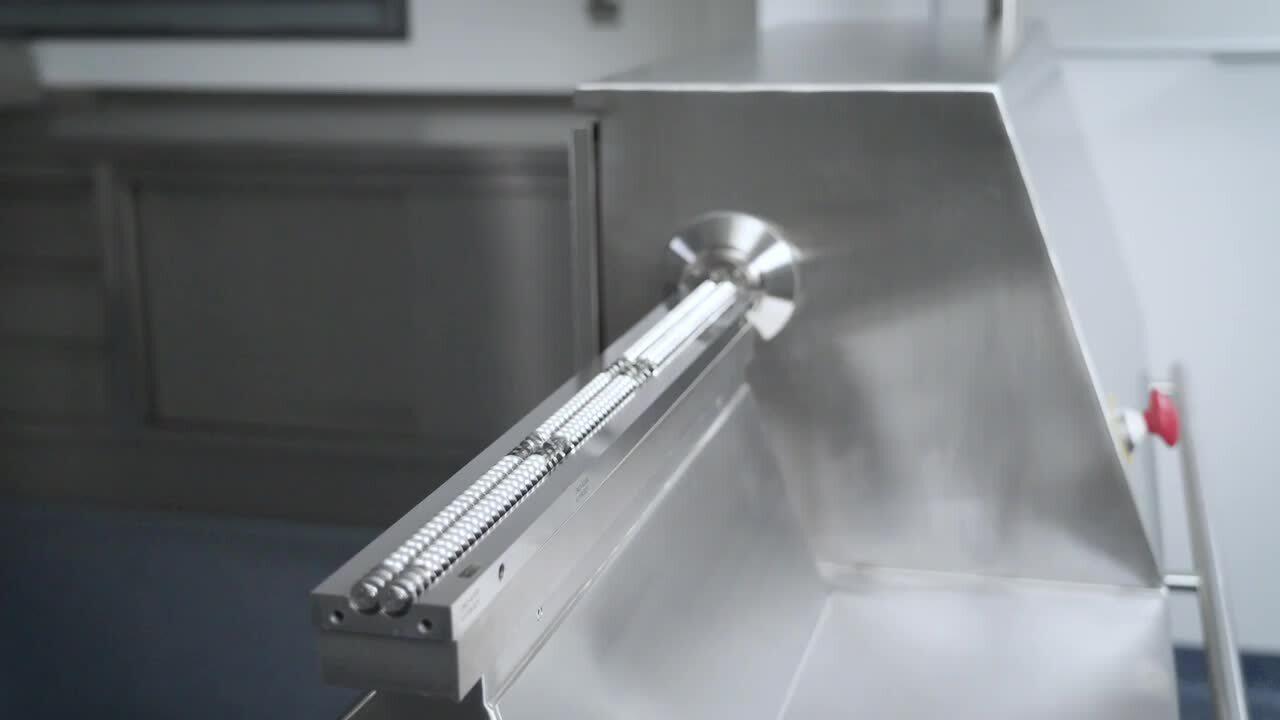
Pharmaceutical extruders for drug delivery systems and products
When developing new drugs, shorter time-to-market, reduced waste of expensive APIs, and minimized development costs provide a distinct competitive advantage for pharmaceutical manufacturers. Thermo Scientific pharmaceutical extruders and related analytical instrumentation shorten the path from feasibility studies to manufacturing and help overcome drug formulation challenges.
Pharmaceutical extrusion technology
Compounding and extrusion technologies have been used in manufacturing for centuries and have become a valuable tool in novel drug formulation, as they can enhance the solubility and bioavailability of poorly soluble APIs, transition from inefficient batch processing to continuous manufacturing, and produce novel delivery systems such as injectable implants.
Pharmaceutical formulation development
Pharmaceutical extrusion is a versatile tool for the formulation and development of oral solid dosage forms as well as novel drug delivery systems.
Solubility and bioavailability enhancement with pharmaceutical extrusion
90% of new molecules and roughly 40% of the top solid oral drugs marketed in the US and Europe have generally low solubility. Hot melt extrusion can help to overcome this challenge by compounding the API with different polymeric excipients on a molecular level, forming different solid dispersions. The physical and chemical properties of these dispersions can increase drug shelf life, decrease particle size, and improve bioavailability in combination with a solubilizing excipient.
Continuous granulation with pharmaceutical extruders
Producing novel drug delivery systems with pharmaceutical extruders
Novel drug delivery systems can help increase patient compliance and reduce side-effects by providing more targeted modes of action. Injectable implants, transdermal patches, orally dispersive films, and flexible vaginal rings used to prevent pregnancy are only a few examples of cutting-edge drug delivery systems created with pharmaceutical extrusion.
Pharmaceutical extruder capabilities
Flexible pharmaceutical extrusion that complies with GMP and regulatory requirements
Thermo Scientific pharmaceutical extruders are used worldwide in drug development, from research to production. The technical advantages of our instruments are supported by comprehensive documentation, which complies with all relevant GMP and regulatory requirements. This includes material certificates and surface measurements, wiring diagrams and calibration protocols, FAT/SAT protocols, and full-service support for IQ/OQ of instrumentation. All extruders support compliance with 21 CFR Part 11 and offer options for batch records and test protocols, making them suitable for commercial production.
Pharmaceutical extruders that save space and time
The Thermo Scientific Pharma 24 Twin-Screw Extruder is a compact instrument which requires much less space than similar extruders with comparable throughput. The Thermo Scientific Pharma 11 Twin-Screw Extruder even features a footprint small enough to be easily used for laboratory glove-box applications.
All our pharmaceutical extruders feature a horizontal split barrel that can be opened for easy cleaning and process inspection on all extruder models. Easy access to the inside of the barrel when the process is stopped allows for faster process optimization and system maintenance.
Easily switch between hot-melt extrusion and granulation
Our wide range of accessories and downstream equipment allows for highly flexible application setups in both R&D and commercial-scale production settings. All our pharmaceutical extruders allow you to switch between hot-melt extrusion and twin-screw granulation processes, expanding the range of applications that are possible on one instrument.
Easily scale up your extrusion process
Successful scale-up is defined by materials on production-scale extruders having the same experience as those on the smaller lab-scale extruders. Generally, this means that the residence time of the material within the extruder must be the same—to allow both melting and mixing while avoiding degradation. Thermo Scientific screw geometries are intentionally similar throughout our range of parallel twin-screw extruders. This helps to transfer lab processes into production, following a scientific approach and avoiding intermediate steps.
Pharmaceutical extrusion instruments
From lab to line, our pharmaceutical twin-screw extruders offer flexible compounding configurations with appropriate material throughput. Fully compliant with GMP regulations regarding materials used for product contact parts, our instruments come with comprehensive documentation on qualification as well as CFR 21 Part 11 compliant software.
Pharma 11 Twin-Screw Extruder
Perform material- and labor-effective extrusion and granulation processes with the Pharma 11 Twin-Screw Extruder. Throughput levels can range from 20 g/hour up to 2.5 hg/hour, making the instrument equally suitable for R&D work as well as small-scale commercial production. For the latter, its industry-standard PLC makes it easy to integrate into existing process control systems.
21 CFR Part 11 compliance support and batch report/audit trail options are also available.
Pharma 16 Twin-Screw Extruder
Rapidly develop pharmaceutical formulations and adopt continuous processing methods with the Thermo Scientific Pharma 16
Twin-Screw Extruder. Optimize drug process development parameters in less time and with less effort than traditional batch processes. Only minimal amounts of expensive APIs and excipients are needed to scale up processes developed on the Pharma 16 Extruder to larger Thermo Scientific extruders.
Pharma 24 Twin-Screw Extruder
The Pharma 24 Twin-Screw Extruder offers both hot-melt extrusion and twin-screw granulation, making it ideal for continuous processing in pharmaceutical R&D and production. The Pharma 24 Extruder requires a smaller clean room area while providing consistent and controllable processing, reduced product changeover time, on-demand production, minimized scale-up risk, and reliable cleaning.
Pharmaceutical micro compounders
For Research Use Only. Not for use in diagnostic procedures.



